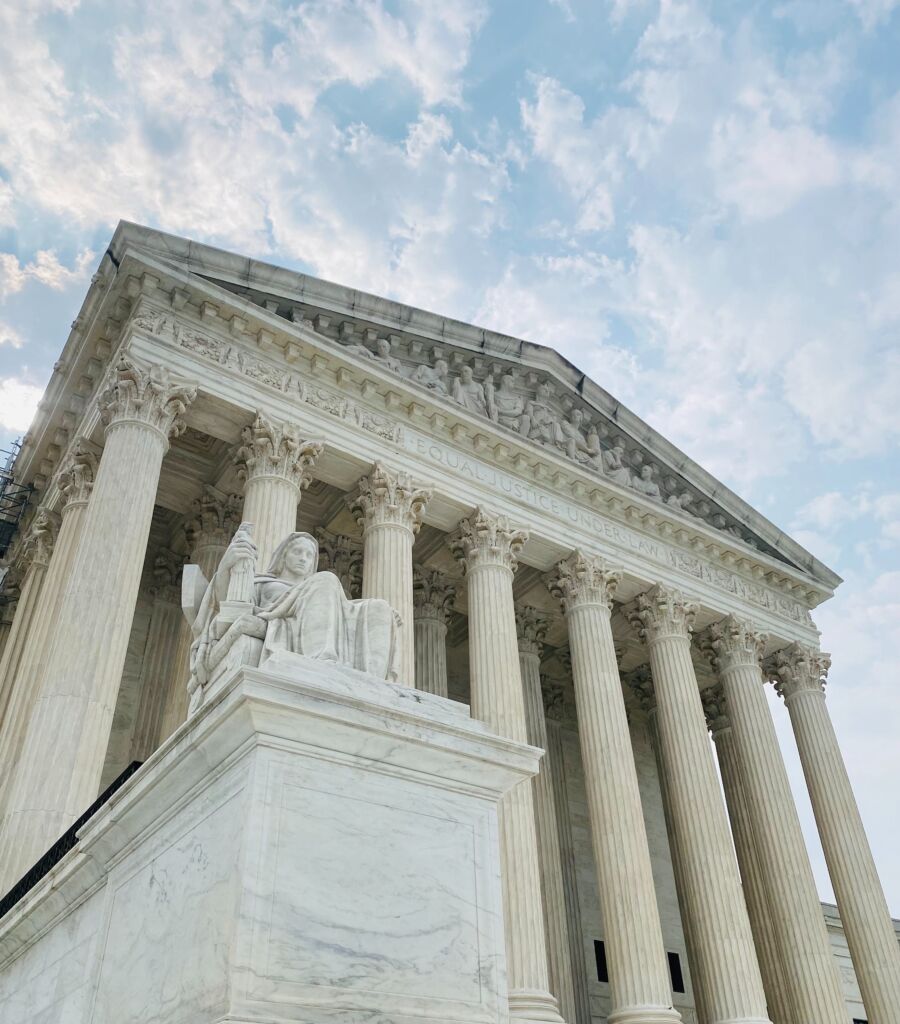2023 was quite the year in terms of notable events and 2024 is shaping up to be no different. Here are some of the biggest labor-related news stories from last year. Even if you didn’t hear about these events, there’s a good chance you’ll likely feel their effects, even if indirectly.
Table of Contents
ToggleKey Supreme Court Decisions
In 2023, the U.S. Supreme Court issued three major employment-related decisions. The most prominent was Students for Fair Admissions, Inc. v. President and Fellows of Harvard College. In this case, the Supreme Court struck down the use of affirmative action in the college admissions process.
This decision only applies to the college admissions process and doesn’t apply to employers. However, in an abundance of caution, employers may scale back or eliminate diversity, equity and inclusion policies. This could make it harder for employers to diversify their workforce.
The second employment-related decision was Groff v. DeJoy. Employers may no longer deny a religious accommodation because it imposes a small or minor inconvenience on the employer. Now, the employer has to provide the religious accommodation unless it places a substantial burden on the employer. Time will tell exactly what the new standard means in practice, but it’s clear that it will mean the employer must try harder to provide the accommodation.
The final case received little media attention, but it is still important in terms of the Fair Labor Standards Act of 1938 and overtime pay. The Supreme Court’s decision in Helix Energy Solutions Group, Inc. v. Hewitt redefines how the bona fide executive overtime exemption applies. Here, even if an employee receives significant compensation (think six figures in annual compensation), they could still be eligible for overtime pay.
ChatGPT
Artificial intelligence isn’t new, but it made a big splash in 2023 with ChatGPT. The overall merits of this technology are up for debate and how it will change our lives is still being decided. Yet many people are already using it for work for tasks such as drafting correspondence, research, brainstorming, writing computer code and looking for patterns in large amounts of data.
Organized Labor
The coronavirus pandemic helped shift labor bargaining power to workers. Last year was a notable milestone for this transition thanks to several successful strikes. The biggest was probably the United Auto Workers strike, which resulted in significant wage increases and the return of cost-of-living adjustments (among other things). A few other significant successful strikes included:
- Kaiser Permanente: workers received across-the-board pay raises, bonuses and promises to address staffing issues.
- SAG-AFTRA: the deal brought about higher wages, better bonuses for streaming content and significant artificial intelligence protections.
- Writers Guild of America: major terms of the agreement included limitations placed on the use of artificial intelligence, wage increases and compensation minimums for streaming content.
Easing of Child Labor Laws
The problem of child labor in the United States continues to exist and is arguably getting worse. Yet some states have rolled back child labor laws. Part of this move is to make it easier for employers to find workers in a tight labor market. Critics argue this could make it easier for employers to exploit children or for children to get hurt while employed.
In March 2023, Arkansas enacted a law that eliminated certain age verification and certificate requirements for employees under 16. In May 2023, Governor Kim Reynolds of Iowa signed into law a bill that increased the number of hours teenagers could work during the school year.
This new law also allowed children to take certain jobs they previously couldn’t, such as serving alcohol and working in manufacturing, as long as certain conditions were met. There are questions as to whether certain provisions of Iowa’s law can survive legal challenges where they conflict with federal employment laws.
Iowa and Arkansas aren’t the only states that have successfully loosened child labor restrictions. They also probably won’t be the last, given how many other states have introduced similar bills.
The 4-Day Workweek Gains Steam
There’s been a global trend of companies experimenting with the idea of shifting from a traditional five-day workweek to a four-day workweek. Led by organizations like 4 Day Week Global, the goal is to have employees work four days in a week, yet retain the same pay and productivity as a five-day workweek. However, depending on how the schedule is implemented, employees may work either the same number of hours or 20% fewer hours.
The results from various experiments and studies show that in most cases, it’s well-received by workers and their employers. And while it’s not for everyone or every employer, it looks like the idea of the four-day workweek is here to stay for many workplaces.
Pregnancy and Breast Feeding Laws Go into Effect
Two key pregnancy and breastfeeding federal laws went into effect last year. First, there was the Providing Urgent Maternal Protections for Nursing Mothers Act or PUMP Act. This law took the benefits and protections from the Break Time for Nursing Mothers Law which Congress passed as part of the Patient Protection and Affordable Care Act in 2010 and applied them to almost all workers covered by the Fair Labor Standards Act of 1938.
Before the PUMP Act, only employees who were eligible for overtime pay under the FLSA could receive workplace breastfeeding benefits. Another addition brought by the PUMP Act is that employees now have multiple legal remedies available for violations of this law, such as equitable relief and compensatory, liquidated and compensatory damages.
Next, there was the Pregnant Workers Fairness Act. Going into effect in June, this law required covered employers (those with 15 or more employees) to provide reasonable accommodations to eligible employees for limitations due to their pregnancy, childbirth or related medical conditions.
Loud Quitting
In 2022 we were introduced to quiet quitting. In 2023 we learned about loud quitting. While the definition of quiet quitting is fairly consistent, what it means to loud quit seems to vary. One definition refers to loud quitting as a worker vocalizing their unhappiness at work.
Another definition includes the worker proactively finding ways to harm their employer. Loud quitting can exist whether the worker continues to stay with their employer or quit. These actions have been around for ages, so this may just be more evidence of worker empowerment.
Bottom Line
Last year saw a lot of positive changes for workers and reflected the power shift in favor of workers that began with the coronavirus pandemic. 2024 may see this trend continue, although it’s possible that 2023 may represent the peak of this power shift.





